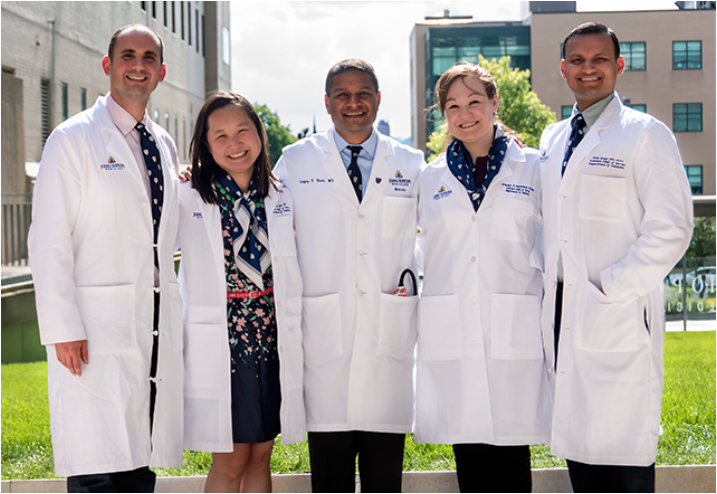In honor of our upcoming inaugural Department of Medicine Education Retreat, I will be posting interviews with some of our educational leaders every Friday leading up to the retreat on Tuesday, October 30. This week we'll hear from our ACSs at JHH. Click here to view previous interviews with Sanjay Desai, Erica Johnson and our Bayview ACSs.
For more information and to register for the retreat, visit: https://www.hopkinsmedicine.org/Medicine/education/education-retreat.html
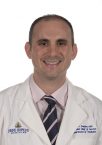 David Furfaro, assistant chief of service for the Osler Medical Residency Program, Janeway Firm
David Furfaro, assistant chief of service for the Osler Medical Residency Program, Janeway Firm
Dave received his medical degree from Harvard Medical School before joining the Osler program. He then completed a pulmonary and critical care medicine fellowship at Columbia University of Medicine.
Why did you choose to complete your residency at Hopkins?
I choose to come to Hopkins for residency for two main reasons. The first was that I thought the ACS system was fantastic. I liked the idea of having a longitudinal relationship with an attending who was dedicated to my clinical progress throughout the year. The system ended up being even better than I imagined and allowed me to learn clinical skills directly from a fantastic and committed mentor. The second was that I had talked to other residents who finished the program and they all felt confident in their abilities to work in any environment. I wanted to have that skill level and confidence after my training.
What drew you to the program?
As I mentioned above, it was mainly the ACS system and the reputation for fantastic clinical training. Additionally, I thought the culture was collegial and instructive without being overly rigid or intense.
What are you most excited about in the coming year?
I am most excited about the extra time for teaching and education sessions that the new rotation system on the O affords. We are doing some great sessions about diagnostic reasoning and I would like to expand upon the journal clubs that we already have.
What inspired you to stick with the program after completing your residency?
I had a fantastic experience during residency both in terms of my education, but also with all of the people at Hopkins. I developed lifelong friendships and mentor-mentee relationships while learning clinical skills and caring for interesting patients. I wanted to join the program as an ACS in the hope that others could have a similar experience with the program.
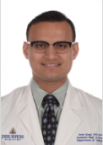 Amit Goyal, assistant chief of service for the Osler Medical Residency Program, Barker Firm
Amit Goyal, assistant chief of service for the Osler Medical Residency Program, Barker Firm
Amit completed his undergrad at UC Davis before medical school at the University of California San Diego. He is now working on a cardiology fellowship at the Cleveland Clinic with an interest in interventional cardiology.
Why did you choose to complete your residency at Hopkins?
With newfound free time before residency interviews, I read William Osler: A Life in Medicine by Michael Bliss. When I finally arrived at the Johns Hopkins Hospital, the medical history and its heroes I had just read about came instantaneously to life. I was awestruck to find myself at the birthplace of residency training itself! The buildings of yore stand in harmony alongside the glistening façade of the recently completed Sheikh Zayed tower, a seamless contrast that embodies the Osler Program: the foundation of strong traditions combined with the excitement of future innovations.
What drew you to the program?
The Osler Residency Training Program is the whole package. I was specifically impressed by the rigor of clinical training. The volume, breadth and autonomy make for an incredible experience. Combined with the scholarly opportunities, enthusiastic mentorship and emphasis on developing residents as educators all equip graduates with the tools to pursue any career beyond residency. Moreover, I just felt at home. The warm reception and friendships among the housestaff showed me that I could genuinely enjoy growing as a doctor and person here. The unique firm system really cultivates a sense of belonging and camaraderie.
What are you most excited about in the coming year?
Our innovations in medication education have been the most exciting part of this academic year. We developed a unique morning report structure, the Case Oriented Report and Exam Skills (CORES) where a traditional classroom-based case report is followed by a group visit to the discussed patient’s bedside to perform a guided evidence-based exam, combining bedside skills with clinical reasoning. This incorporates a new Point-of-Care Ultrasound (POCUS) curriculum utilizing simulation center technology, standardized patients and real cases. We also created new interactive case conference series—Osler Grand Rounds—in which a mystery case is presented with input from expert discussants to inspire and emphasize diagnostic reasoning. Such efforts have invigorated our commitment to medical education and clinical excellence.
What inspired you to stick with the program after completing your residency?
Returning as an assistant chief of service gave me the opportunity and honor to give a little back to the program that has given me so much. Most importantly, this position gives me the privilege and joy of working with a remarkable group of trainees Moreover, returning to Johns Hopkins gifts me just a little more time with the mentors who made me the person I am today.
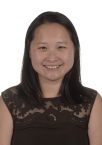 Susan Lin, assistant chief of service for the Osler Medical Residency Program, Thayer Firm
Susan Lin, assistant chief of service for the Osler Medical Residency Program, Thayer Firm
Susan received her medial degree right here at Johns Hopkins University before joining the Osler program. Alongside her role as an ACS, she is completing a fellowship in Pulmonary and Critical Care Medicine at the Hospital of the University of Pennsylvania.
Why did you choose to complete your residency at Hopkins?
As a Johns Hopkins medical student, I rotated on the “O” for my basic medicine rotation as well as my sub-internship. During those two months, I was perpetually impressed by the collegiality amongst the interns and residents. Even on the busiest days, there was always a sense of teamwork and willingness to help each other out.
What drew you to the program?
I was personally drawn to the Osler Residency Program because of its emphasis on critical thinking and independence. I appreciated the learning model where the intern has the first input into any plans which would then be crafted and altered by the senior residents and attending.
What are you most excited about in the coming year?
I am most excited about the opportunity to witness the personal and professional growth of the 13 interns on the Thayer Firm. The interns spend a significant portion of their intern year on the Osler Service, and I have the unique experience of taking freshly-minted medical school graduates and helping to craft them into doctors.
What inspired you to stick with the program after completing your residency?
I am very much a product of the Osler Program. Over my three years of residency, I worked with some of the most compassionate and thoughtful individuals and learned from the best in the field. I returned for my chief year so I could again work and learn from the best.
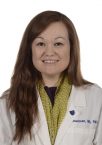 Jacquelyn Zimmerman, assistant chief of service for the Osler Medical Residency Program, Longcope Firm
Jacquelyn Zimmerman, assistant chief of service for the Osler Medical Residency Program, Longcope Firm
Jackie complete her medical degree at the University of Alabama School of Medicine before joining the Osler program. She is currently completing a fellowship in oncology here at Johns Hopkins University.
What inspired you to stick with the program after completing your residency?
When I interviewed at the Osler program, I was struck by the emphasis on education and the knowledge of the interns. I was impressed with the skill and poise with which they cared for patients of high acuity. The structure of the program clearly fostered the development of a community of learners striving to take exceptional care of their patients.
What drew you to the program?
The interns and residents were genuinely happy and it showed in their care of patients.
What are you most excited about in the coming year?
I am looking forward to watching the interns excel and gain confidence throughout the year. They are an incredibly enthusiastic and diverse group rivaled only by the enthusiasm of the senior residents. It has been so much fun to work with the senior residents and watch them share their knowledge and experiences.
